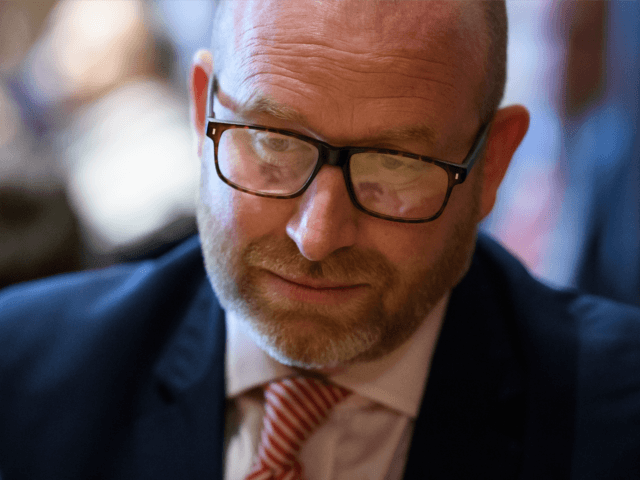The UK Independence (UKIP) party has lost every single one of the council seats it was defending in local elections overnight, with the Tories making significant gains and Labour also losing out.
By just after 11:30 am on Friday, the Tories had gained more than 163 seats in England, whilst Labour had lost 104 and UKIP were down 46.
Overall, 88 councils were up for grabs just 34 days before the general election. Large numbers of votes are still to be counted and results from Scotland have only just begun to come in.
UKIP leader Paul Nuttall said it had “been a difficult night” in a statement, adding: “In the local elections yesterday many excellent UKIP representatives lost their seats on county councils despite campaigning hard for re-election.
“Frankly, there is nothing they could have done in the face of a big national swing to the Tories”, he said, adding: “If the price of Britain leaving the EU is a Tory advance after taking up this patriotic cause then it is a price UKIP is prepared to pay.”
There were 71 areas where the size of the Labour majority was smaller than the UKIP vote, meaning that UKIP voters deserting the party for Theresa May’s Brexit government could be disastrous for Labour.
Labour took losses in Wales, losing control of the heartland mining towns of Blaenau Gwent, Bridgend and Merthyr Tydfil. However, they surprised pundits by holding on to Cardiff, Swansea, and Newport councils.
The Conservatives took control of five local councils. These included Lincolnshire, Gloucestershire, the Isle of Wight, and Warwickshire – a council they failed to win at the last local election largely due to UKIP eating into their vote.
In Lincolnshire alone, UKIP lost nine seats and handed over control of the council to the Conservatives.
The Tories, however, were denied an overall majority in Northumberland after the result of the last seat was decided by a straw draw because two candidates – the other from the Lib Dems – received the same amount of votes.
Despite the majority of the seats switching to the Tories, the Lib Dems had a mixed night, taking seats from UKIP in Eastleigh, for example.
Professor John Curtice, the BBC’s lead elections expert, commented: “It looks as though [UKIP] is doing pretty much in line with the 6/7 per cent it is getting in the opinion polls.
“It has not disappeared entirely. You can still see a recognisable UKIP vote. But its misfortune is that it was defending a very, very good set of results back in 2013 and compared with that the party is a pale shadow of itself.”
Councilor Peter Reeve, UKIP’s Local Government spokesman, said: “2013 was a really big year for UKIP. It was the year that really sparked us into leading national politics”, pointing to the party’s large gains and “forcing” the prime minister into holding the Brexit referendum.
Speaking on BBC News, he added: “So this round of elections, when those seats are back up, was always going to be incredibly difficult and we’ve never shied away from that.
“The difference, though, between UKIP and the other parties, is that whilst they sacrificed their principles and their policies and their morals… for power at any cost, we in UKIP are here to change the country.”
Mr. Reeve said this approach “was sometimes at our own expense”, and the party would do the same at the general election by not fielding candidates against strongly pro-Brexit MPs from other parties.
Speaking on BBC news shortly before him, Labour MP Stephen Kinnock said “it’s a disastrous picture” across the board for Labour, insisting the results are “just not good enough” as the party heads into the General Election in a few weeks.
“The fact is Jeremy’s leadership comes up on a doorstep on a regular basis”, he said. “We have to make the election about more than leadership.”
More follows…

COMMENTS
Please let us know if you're having issues with commenting.